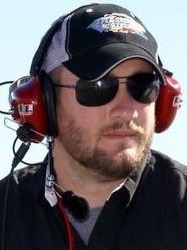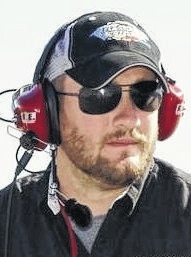To most, the announcement that some guy was buying a stake in a race team doesn’t mean a whole lot.
Just a small blip that newspaper editors would argue about, over whether it belonged on the business page or the sports page. Most likely, it would end up on neither.
But last week’s announcement that current Michael Waltrip Racing co-owner Rob Kauffman was buying into Chip Ganassi’s NASCAR organization could have major implications on stock-car racing and its ownership structure.
In the short term, Kauffman taking his significant financial resources from MWR probably means we won’t see the last of the original Toyota teams in 2016. Word around the campfire is that Kauffman will be taking driver Clint Bowyer and sponsor 5-Hour Energy with him to Ganassi.
The other MWR entry — the No. 55 — does not have sponsorship for next year.
Again, doesn’t sound like that big of a deal. None of the original Dodge teams from 2001 are still around. Of the original Toyota teams from 2007, Bill Davis Racing and Red Bull Racing are gone. So are Dale Earnhardt Inc., Robert Yates Racing, and Donleavy Racing. The list goes on. Teams leave NASCAR for a variety of reasons all the time
And there’s the rub and why Kauffman’s move is so important considering the context of the recent discussions between NASCAR brass and a group that Kauffman leads, the Race Team Alliance, a business coalition of team owners, about franchising in NASCAR.
Since the founding of NASCAR in 1948, teams have operated as independent contractors and the only value being equipment, facilities and sponsorship.
Based on the conversations that the RTA and NASCAR have had recently, that could change soon. Franchising or licensing of teams would afford team owners more long-term value of their investment in the sport.
Basically NASCAR would sell franchises, much like MLB, NFL, NBA or NHL, and only those 43 (or however many licensed cars) would show up every week to the racetrack.
“What I can say is both NASCAR and the teams recognize that the teams building up some kind of long-term equity for participating in the sport, year in and year out and putting on the show, is a good thing,” Kauffman said in June. “You look at a lot of other sports around the world, and that’s how they work.
“So the question is can you come up with some model within the framework of NASCAR that makes sense for everybody. It’s a very sensible concept. The hard part is the details. So we’re having productive discussions to see if we can figure out how to do it. It’s an ongoing project.”
This is not a new concept in NASCAR. It comes up from time to time. A cursory Google search found a 15-year old article on ESPN from Ray Dunlap about how it’s a bad idea. In April 2007, Richard Petty was for it. In 2010 it came up again. Joe Gibbs talked about it back in January.
“With all of us in the sport – you have to have healthy car owners,” Gibbs said. “NASCAR knows that. We know that. I think right now, where we are, you really have to be on your toes to make this business model work.
“For all of us, I think what we’re doing is trying to research what can be done to make this a better business model because otherwise, you’re only going to have the super-rich that are able to afford to be in it and lose money. That doesn’t make sense. There’s not a lot of people that can do that.”
It’s the old maxim: How do you become a millionaire as a racecar owner? Start as a billionaire.
Franchising becomes the model to preserve that value, but it is not without its drawbacks. The financial barriers to entry in NASCAR are already high and this model will make them even higher. What happens to part-time teams like the Wood Brothers. Those guys have been racing since before NASCAR was around. A franchise model shuts them out unless they want to run a full season and pay the licensing fee.
Back to Kauffman, if licensing is coming — which it sounds like it is — jumping ship to Ganassi from MWR makes a lot of sense. A three-team license is a lot more competitive than a two-team license (which both Ganassi and MWR are now) and Kauffman knows that.
He is a guy who loves racing, but can’t be the guy turning billions into millions with nothing to show for it when he decides to walk away.
Oh yeah, and he likes winning, which is more likely to get you on the sports page and off the business page.
— Andy Cagle writes a weekly column about auto racing. Follow him on twitter @andy_cagle or email him at andycagle78@gmail.com.



